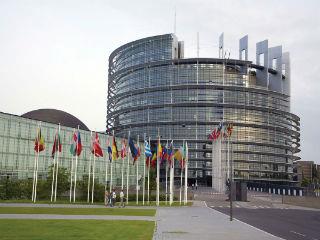by
Martin Banks
The growing importance of PM on the road to a healthier Europe has been thrown into sharp relief in the run-up to the European elections in May.
Cross-party and pan-European MEPs are putting their weight behind PM, which by utilising new science and technology, achieving better communication, improving patients’ access to clinical trials and building more cross-disciplinary collaboration aims to deliver ‘the right treatment to the right patient at the right time’.
The European Alliance for Personalised Medicine (EAPM) recently launched its ‘Five steps towards a healthier Europe’ (STEPs) campaign in the European Parliament in Brussels and the campaign will continue during the run-up to the Euro elections.
Now, MEPs are calling for the issue to be put on the political manifetos of those contesting the pan-EU elections.
These include Marion Harkin, Peter Liese, former European Commissioner and now MEP Danuta Huebner, Sean Kelly and Petru Luhan.
These are joined by Maria da Graca Carvalho, Kristiina Ojuland, Karin Kadenbach, Thomas Ulmer, Sirpa Pietikainen and Ria Oomen Ruijten.
Swelling the ranks are Antonya Parvanova, Vittorio Prodi, Mirouslav Ouzky, Marisa Matias, Anna Rosbach, Anja Weisgerber and Sidonia Jedrzejewska.
On a general note, Peter Liese said: ‘I think PM is a big opportunity, a big challenge. We need to make it available for as many patients as possible; as soon as possible. Therefore we need a European regulatory environment. I very much support the idea of the European Commission making PM a priority in the coming years as it really helps patients to be treated better.’
Mirouslav Ouzky pointed out an oft-debated problem, saying: ‘We have a right to seek treatment in any Member State but, on a practical level, sometimes it’s very difficult because it lies close to the social and healthcare systems in each state. The big question is ‘Who will pay?’ We have different prices of medical treatment in different countries so it’s necessary to establish the tools for possible medical treatment across borders.’
Karin Kadenbach added: ‘Almost all EU states have been cutting their budgets but it’s very important that the best access, the best technology and the best medicine remains available to every European. So we have to raise awareness of what is available and how we could cut costs, on the one hand, but have no negative affect on the patients on the other hand. PM could be a way to do this.’
And Marisa Matias said: ‘In times of crisis it is even more important to finance health because we are facing even bigger struggles when it comes to access to medicines. We should guarantee that there are no cuts in these difficult times. It is also important to increase coordination between Member States.’
E-health and all it potentially offers could be another vital component.
Danuta Huebner, a former EU commissioner, said,‘To really make progress in the quality of our lives we have to invest more in e-health and the access to health services. We must take the challenge of an ageing European population seriously and they can live longer and better lives only if we facilitate their access to healthcare through e-health. That’s the priority of the future European regional policy.
‘But for this to happen,’ she added, ‘we also have to invest more in research in the area of health and I hope that Horizon 2020 – and the link between that and regional policy – will bring progress much faster.’
Many chronic diseases, such as diabetes, heart disease, cancer and Alzheimer’s, are thought to be caused by a combination of genetic and other factors. Such diseases place a significant burden on the healthcare system as well as the patient. PM provides the tools to treat such diseases more effectively than ever before.
This is because PM is the tailoring of medical treatment to the individual characteristics of each patient. Science can now tell us how a person’s unique molecular and genetic profile can make them susceptible to certain diseases.




 By: N. Peter Kramer
By: N. Peter Kramer

